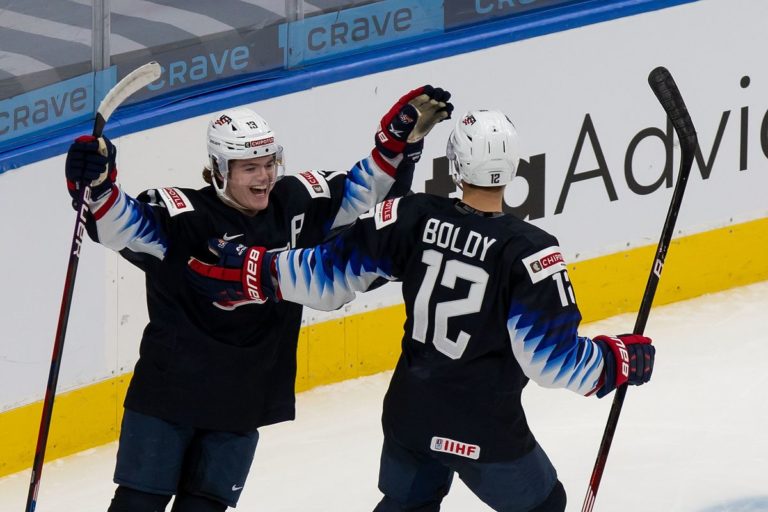After the American team’s legendary 2-0 win over Canada in the 2021 world junior gold medal game, Trevor Zegras’ popularity among hockey fans has spread faster than wildfire. The popularity is well deserved though, as the 19- year old player won the scoring title with 18 points, earned an all-star berth, and walked away with MVP honors in the 2021 tournament.
Confident of his team’s abilities, Trevor Zegras, in a pre-game interview, was confident that the U.S. would take home a gold medal. According to him, the previously undefeated Canadian team had not been tested with a real team yet. When asked to comment on Trevor’s pre-game comments, U.S. Coach Nate Leaman, credited the team’s success to Trevor Zegras’ skills. He commended Trevor for scoring points against every team the U.S. rivaled against.
Zegras may not have Jeremy Roenicke’s rough-wild spirit, but his impact as a world junior legend can be felt. In just two tournaments, he surpassed Roenicke’s 16 points in the single tournament 1989, trailed Dough Weight’s 19 points, and equaled Jordan Schroeder’s career record of 27 points. He has proven to be not just a player, but a creative player. His inventive weird bounce to tuck tactic saw the U.S. winning the gold medal game against Canada.
In the past two years, Zegras has built a successful track record in his career. He recorded zero goals and nine assists at the bronze U18 team and the sixth-place world junior team 2020 tournaments. Today, Zegras is acknowledged as NCAA Hockey East All-Rockie Team with 11 goals and 25 assists. Additionally, he has earned the enviable top-shooter spot for the years 2018 and 2019. If Zegras’ career were to follow the path he is on consistently, he would rival Chara and Henrik Zetterberg.
Trevor Zegras is without a doubt at the helm of his career; the scoring leader has not only built a successful track record for himself but also helped his team triumph over a previously undefeated team.

